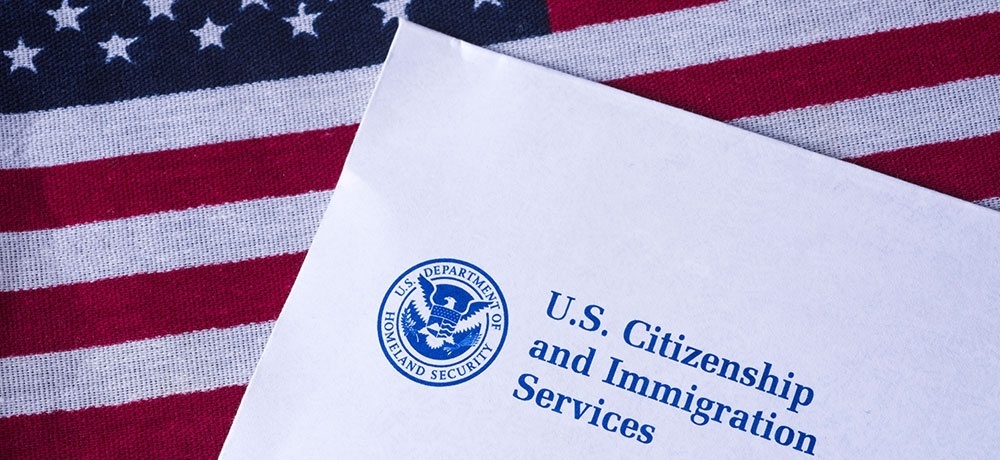
Change in Child Status Protection Act (CSPA) Policy Benefits Age-Out Children
Categories: Attorneys , Best US Immigration Attorney , Business Immigration , Business Law , Citizenship , Citizenship Green Cards , Commercial Litigation , Commercial Transactions , Corporate Law , F visa , Green Cards , immigration attorneys , Immigration Law , International Law , Investment Visas , Investor Visa , L Visa , L-1 Visa , Law Firm , Lawyers , Legal Services , Real Estate , Software Agreements , Technology Law , Trusts And Estates
During the lengthy process of applying for lawful permanent residency cases, there are often many cases of children who age-out and can no longer be included as part of the filing.
Although Child Status Protection Act does help in some situations, the reality is many children are not truly being protected from aging out and obtaining lawful permanent residency with their families. This can be a very stressful situation for families. Hopefully, this news set forth below can offer some relief to children and their families in their situation.
On February 14, 2023, U.S. Citizenship and Immigration Services (USCIS) issued policy guidelines in the USCIS Policy Manuel to update when an immigrant visa “becomes available” for the purpose of calculating Child Status Protection Act (CSPA) age for noncitizens seeking lawful permanent resident status in a preference category. The USCIS policy change is effective immediately and applies to all pending cases.
The original Child Status Protection Act was created by Congress on August 6, 2002. Before this act was passed, the Immigration and Nationality Act (INA) defined a child as a person that is not married and under the age of 21. Therefore, if a noncitizen applying for lawful permanent resident (LPR) status turned 21 before being approved, that person can not longer be considered a child for immigration purposes. This is known as “Aging Out”. When a person “ages out” it often means that they must file a new petition or application, wait even longer to get a Green Card, or may no longer be eligible for a Green Card.
Due to the previously mentioned disadvantages that many noncitizens face when aging out, Congress passed the Child Status Protection Act. The purpose of the act was to aid children that were aging out of the system due to large USCIS processing backlogs. This policy did not change the definition of a child but instead provided a method for calculating a person’s age to see if they meet the definition of a child for immigration purposes. This was called the “CSPA Age”. This allowed affected applicants to remain classified as a child beyond their 21st birthday. When the Child Status Protection Act was implemented, the CSPA age was calculated using the “Final Action Date” of the U.S. Department of State Visa Bulletin.
Under the new guidance, USCIS will now use the “Date for Filing” chart of the Department of State Visa Bulletin, instead of the “Final Action Date.” chart This policy change will help some children and young people with pending Green Card applications to maintain a CSPA age lower than 21 to remain eligible for permanent resident status during the application process. Equally important regarding this change in policy is that if they have filed for adjustment of status applications, they are also eligible to apply for employment authorization and advance parole travel document on the basis of their pending adjustment of status applications. And for those applicants who already have valid employment or travel authorization documents, those documents will remain valid for use.
Furthermore, those applicants who had previously had their adjustment of status applications denied but would have been eligible for continuation of adjustment of status due to this new policy, they may file a motion to reopen their previously denied adjustment of status application with USCIS by using Form I-290B, Notice of Appeal or Motion. Noncitizens must generally file to reopen their case within 30 days of the decision, but for a motion filed more than 30 days after the denial, USCIS may, in its discretion, excuse the untimely filing of the motion if the noncitizen demonstrates that the delay was reasonable and was beyond the noncitizens control.
USCIS acknowledges that this policy update is not a cure-all for every child who will age out before the immigrant visa becomes available to them. But USCIS does explain that it will continue to explore all options available under the law to assist those affected by the ‘aging out’ scenario. However, we do believe that this is a positive development and it will certainly help those applicants who previously may not have the opportunity to pursue permanent resident status due to their age.
Pasricha & Patel’s immigration department has extensive experience in handling business and personal immigration matters. Our team is happy to speak with you on your specific issue, including the various aspects of the Child Status Protection Act and how it may impact you or your family members.